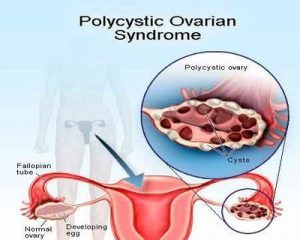- Home
- Editorial
- News
- Practice Guidelines
- Anesthesiology Guidelines
- Cancer Guidelines
- Cardiac Sciences Guidelines
- Critical Care Guidelines
- Dentistry Guidelines
- Dermatology Guidelines
- Diabetes and Endo Guidelines
- Diagnostics Guidelines
- ENT Guidelines
- Featured Practice Guidelines
- Gastroenterology Guidelines
- Geriatrics Guidelines
- Medicine Guidelines
- Nephrology Guidelines
- Neurosciences Guidelines
- Obs and Gynae Guidelines
- Ophthalmology Guidelines
- Orthopaedics Guidelines
- Paediatrics Guidelines
- Psychiatry Guidelines
- Pulmonology Guidelines
- Radiology Guidelines
- Surgery Guidelines
- Urology Guidelines
Air pollution may affect your menstrual cycle: Study

The air your teenage daughter breathes may be causing irregular menstrual cycles, according to a study which has found that negative health effects from air pollution exposure are infertility, metabolic syndrome, and polycystic ovary syndrome.
The study, published in the journal Human Reproduction, is the first to show that exposure to air pollution among teen girls (ages 14-18) is associated with slightly increased chances of menstrual irregularity.
"While air pollution exposures have been linked to cardiovascular and pulmonary disease, this study suggests there may be other systems, such as the reproductive endocrine system, that are affected as well," said Shruthi Mahalingaiah, from the Boston University School of Medicine in the US.
The menstrual cycle is responsive to hormonal regulation. Particulate matter air pollution has demonstrated hormonal activity.
However, it was not known if air pollution was associated with menstrual cycle regularity, until now.
The researchers used health and location data gathered in the Nurses' Health Study 2 plus air pollution exposure metrics from the EPA air quality monitoring system to understand a participants' exposure during a particular time window.
They found exposure to air pollution in during high school was correlated with menstrual cycle irregularity.
"Implications on human disease may come through reducing emissions on a global and individual level," said Mahalingaiah.

Disclaimer: This site is primarily intended for healthcare professionals. Any content/information on this website does not replace the advice of medical and/or health professionals and should not be construed as medical/diagnostic advice/endorsement or prescription. Use of this site is subject to our terms of use, privacy policy, advertisement policy. © 2020 Minerva Medical Treatment Pvt Ltd